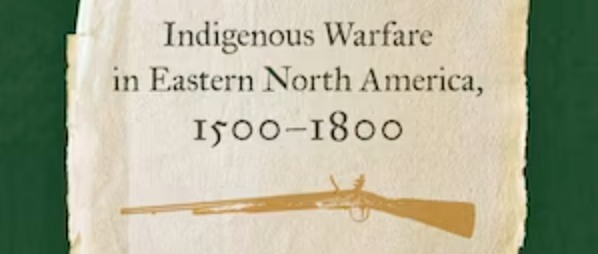Virtual Talk: “The Cutting-Off Way: Indigenous Warfare in Eastern North America, 1500–1800”
This virtual program is part of our Winter Speaker Series, and will be presented on Zoom. A Zoom link will be emailed to all SCHS members before the program. Professor Wayne Lee of UNC-Chapel Hill will discuss his new publication from University of North Carolina Press, "The Cutting-Off Way: Indigenous Warfare in Eastern North America, 1500–1800," which recasts Indigenous warfare in a framework of the lived realities of Native people rather than with regard to European and settler military strategies and practices. Wayne Lee specializes in early modern military history, with a particular focus on North America and the Atlantic World, but he teaches military history from a full global perspective. He also teaches courses on violence as well as on the early English exploration of the Atlantic. As a kind of additional career, he works with archaeology projects in the Balkans and has numerous publications in that field. Notable publications include: The Cutting-Off Way: Indigenous Warfare in Eastern North America, 1500-1800 (Chapel Hill: University of North Carolina Press, 2023) Wayne E. Lee, David L. Preston, David Silbey, and Anthony E. Carlson, The Other Face of Battle: America’s Forgotten Wars and the Experience of Combat (New York: Oxford University Press, 2021). Waging War: Conflict, Culture, and Innovation in World History (New York: Oxford University Press, 2015). Editor, with Michael Galaty, Ols Lafe, and Zamir Tafilica, Light and Shadow: Isolation and Interaction in the Shala Valley of Northern Albania (Los Angeles: Cotsen Institute of Archaeology Press, 2013) Barbarians and Brothers: Anglo-American Warfare, 1500-1865 (Oxford University Press, 2011). Editor, Warfare and Culture in World History (NYU Press, 2011) Crowds and Soldiers in Revolutionary North Carolina: The Culture of Violence in Riot and War (University Press of Florida, 2001) “Fortify, Fight, or Flee: Tuscarora and Cherokee Defensive Warfare and Military Culture Adaptation,” Journal of Military History 68 (2004): 713–770

